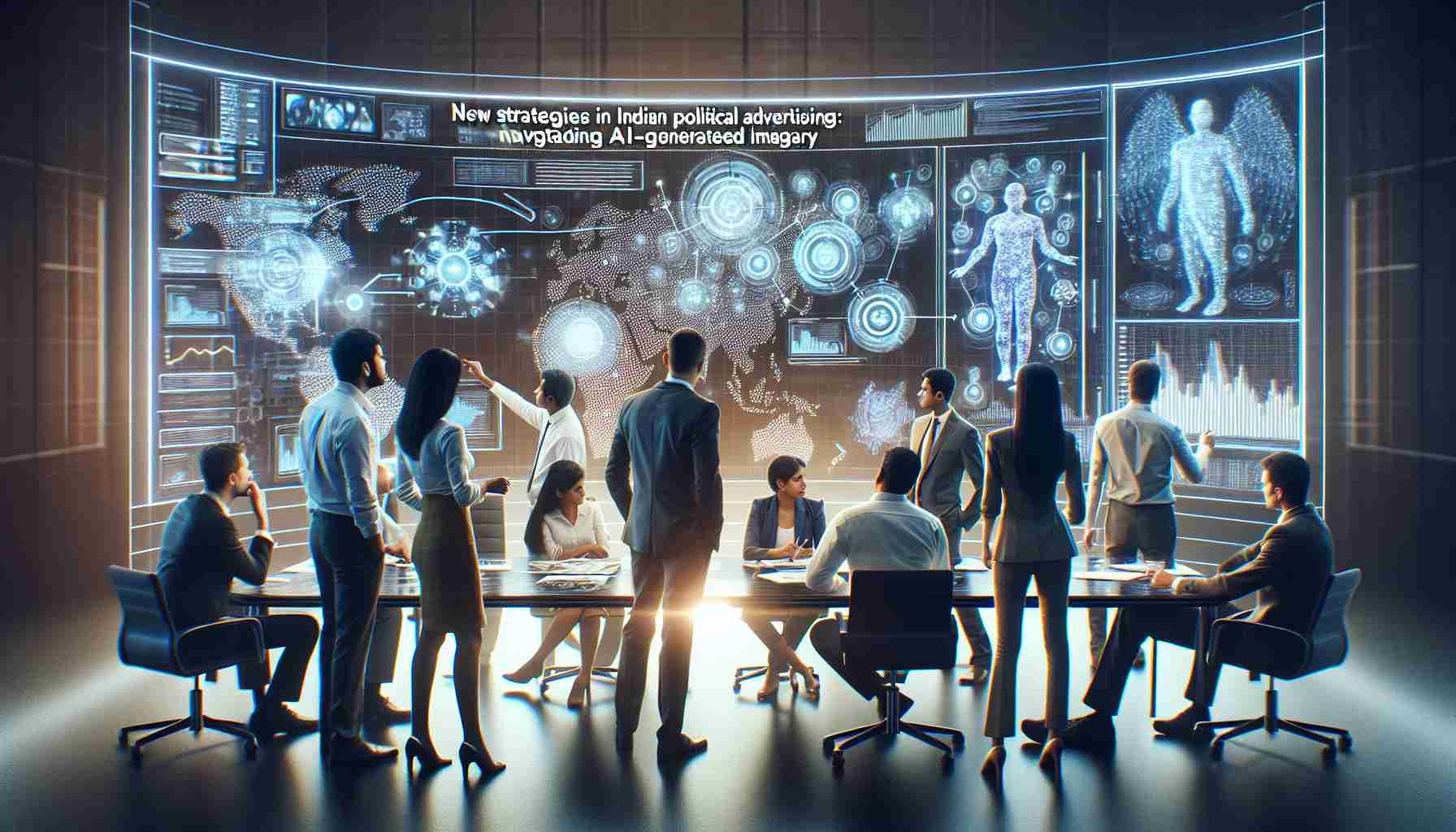Summary: The Indian political landscape is witnessing a significant shift as AI-generated images of Indian Prime Minister Narendra Modi are used in Instagram advertisements to portray him as a legendary figure. This modern approach in political advertising merges mythology with AI art, but raises questions about transparency and the ethical use of technology in elections.
In a recent move within Indian politics, AI technology has been employed artistically to portray Prime Minister Narendra Modi in a heroic light reminiscent of legendary figures from Hindu epics. One such image shows Modi stylized as Bhishma Pitamah, an esteemed character from the Mahabharata, signifying his perceived invincibility and wisdom in the political arena. Sponsored by a right-wing page, this particular image has captured over 35,000 views on Instagram.
The use of AI-generated content in political advertising is gaining traction, as evidenced by the right-wing Instagram page Hokage Modi Sama. This page led the way in circulating AI-altered images of Modi, embedding them with themes of valor and divine embodiment. Their content, although popular, has prompted discussions regarding the transparency and potential manipulative effects of altered images on the electorate.
Meta’s response to the burgeoning trend of AI-generated political ads has been to establish new guidelines ahead of the 2024 elections, mandating that such advertisements conspicuously disclose their digital origin. Despite this effort to enhance transparency, Hokage Modi Sama’s images currently lack the “Digitally created” label as required by Meta.
The strategy of employing AI in political propaganda reflects a sophisticated evolution from traditional methods of election campaigning. These images are not solely about deceiving the public with false narratives, but also about leveraging AI’s creative potential to foster compelling and shareable political stories. The tactic especially taps into cultural mythology, amplifying Modi’s persona to amplify the ruling party’s core narratives. This unique combination of historical grandeur and modern technology represents a powerful tool in framing political discourse, but it also highlights the urgent need for clear editorial standards and ethical practices in digital advertising.
The Indian political landscape and AI-generated imagery
India’s political landscape is undergoing a transformation as AI technology is increasingly integrated into campaign strategies. The use of AI-generated images to cast political figures in a mythological or heroic light is a testament to the growing sophistication of political advertising. Particularly, the portrayal of Prime Minister Narendra Modi through this lens not only impacts the electorate’s perception but also signifies a larger shift in the approach to political communication. This method builds on cultural narratives and historical iconography, potentially redefining the way political personas are crafted and conveyed to the public.
Market forecasts and AI adoption in political campaigns
The incorporation of AI in political advertising is reflective of broader market trends where AI adoption is forecasted to grow significantly. This technology’s influence on various sectors, including marketing and public relations, is expansive, with political campaigning being one of the latest frontiers. Market forecasts within the AI industry suggest a steady climb in the investment and utilization of AI technologies for diverse applications. Consequently, the political arena is expected to follow suit, adapting to the innovative ways in which AI can enhance messaging and voter engagement.
Issues and ethical considerations
Despite the promising integration of AI in politics, the practice raises several ethical and transparency issues. The manipulation of images to elevate a politician’s image could be misleading, affecting voters’ perceptions and decision-making processes. Furthermore, the ability to generate convincing yet falsified content heightens the risk of spreading misinformation. As the use of AI grows, the demand for appropriate regulations and ethical guidelines is becoming more pressing. This is not just an issue in India, but a global concern, considering the international implications of AI’s role in politics and information dissemination.
For deep insights into the global AI space and market analysis, respected industry resources such as Gartner and Forrester offer research and reports that can illuminate future trends and challenges in the industry.
As the political use of AI continues to unfold, it remains to be seen how electoral agencies and governing bodies worldwide will address these emerging challenges. It is paramount that a balance is struck between innovation in political campaigning and the preservation of democratic integrity.

